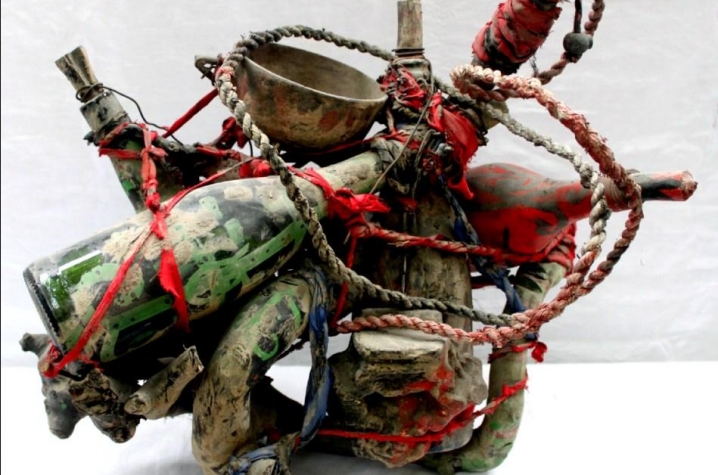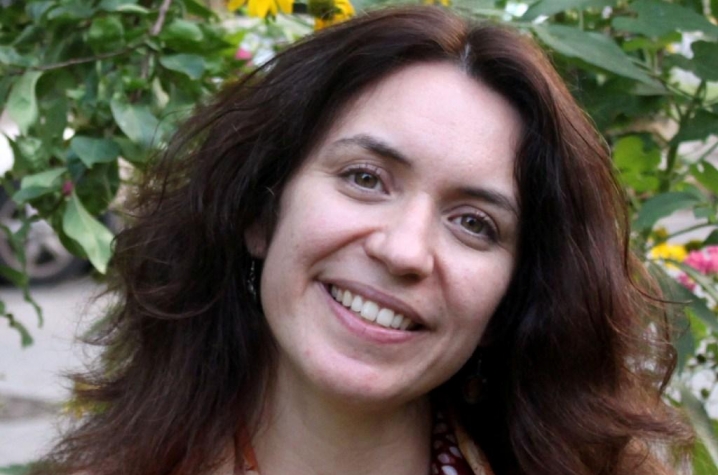Vodou for the Haitian Soul
LEXINGTON, Ky. (Nov. 4, 2010) – There is a saying in Haiti that 90 percent of the population are Catholic, 10 percent are Protestant, and 100 percent are Vodou.
Vodou scholar Leslie Brice will share her knowledge and experience with the complex religion, as well as its revitalizing role in Haitian life at University of Kentucky's campus this week.
Brice will present the third lecture of the "Haiti in the Modern World," series, titled, "Vodou and the Art of Recuperation" at 4 p.m. on Friday, Nov. 5, in the Niles Gallery.
[IMAGE1]
Brice will discuss Haitian religion and art, including Vodou, a sophisticated religion based on African, Amerindian and European traditions.
"I’m going to talk about how Vodou visual arts offer an alternative way of understanding a challenging Haitian history," said Brice. "While these arts express triumphs, they also express the paradoxes and the pain. Vodou and the arts created within practice assemble the fragments of history, helping practitioners to reclaim their past and create a sense of self-determination in the present."
The heart of Vodou can be found in the religion's music, dance, community-building and healing. "In its teachings, arts, songs, and dances, Vodou captures and remembers an extraordinary range of human experiences that help practitioners navigate adversity and to heal," said Brice. "Vodou practitioners also receive great strength and guidance from the 'lwa' (or spirits), the ancestors, and from each other. I experienced this six months after the earthquake when I participated in a ceremony for 'Ogou,' the 'lwa' of war, but also of power and strength."
Initially drawn to study Vodou through its music, dance and art, Brice spent many summers in Haiti carrying out vodou research. "Vodou played a key role in creating an ideology of resistance and strength during the [Haitian] War of Independence," Brice said. "People felt empowered through ritual to do incredible feats."
Not all Haitians practice Vodou; some, in fact, oppose it, Brice says. A recent public display of this happened in February, when protestors attacked practitioners who gathered to hold a ceremony to honor the victims of the earthquake.
"In Vodou, death without proper burial is beyond tragedy," said Brice. "Haitians had to watch with horror and indignation the shocking manner in which the bodies of their loved ones were treated following the earthquake. This is why hundreds of Vodou practitioners held a public ceremony in Port-au-Prince late March to honor the departed and restore to them a sense of dignity that had been so egregiously denied."
Brice earned her Ph.D. in art history at the University of Maryland and has held positions at that university and at the Corcoran College of Art and Design in Washington, D.C. She has done extensive research on the aesthetic and spiritual qualities of the objects used in Haitian Vodou religious ceremonies.
Popkin's "Haiti in the Modern World" series and accompanying course of the same name focus on different aspects of Haitian life.
"Every American knows about the poverty that afflicts Haiti," said Popkin. "But there are fewer people who know about the vibrant culture of the country."
"Haiti in the Modern World" is co-sponsored by the College of Arts and Sciences, Department of History, International Studies Program, French Division of the Department of Modern and Classical Languages, Department of Political Science, Africana Studies Program, Patterson School of Diplomacy, and the Office of the Provost.
For more information on "Haiti in the Modern World," please contact Popkin at popkin@uky.edu.






